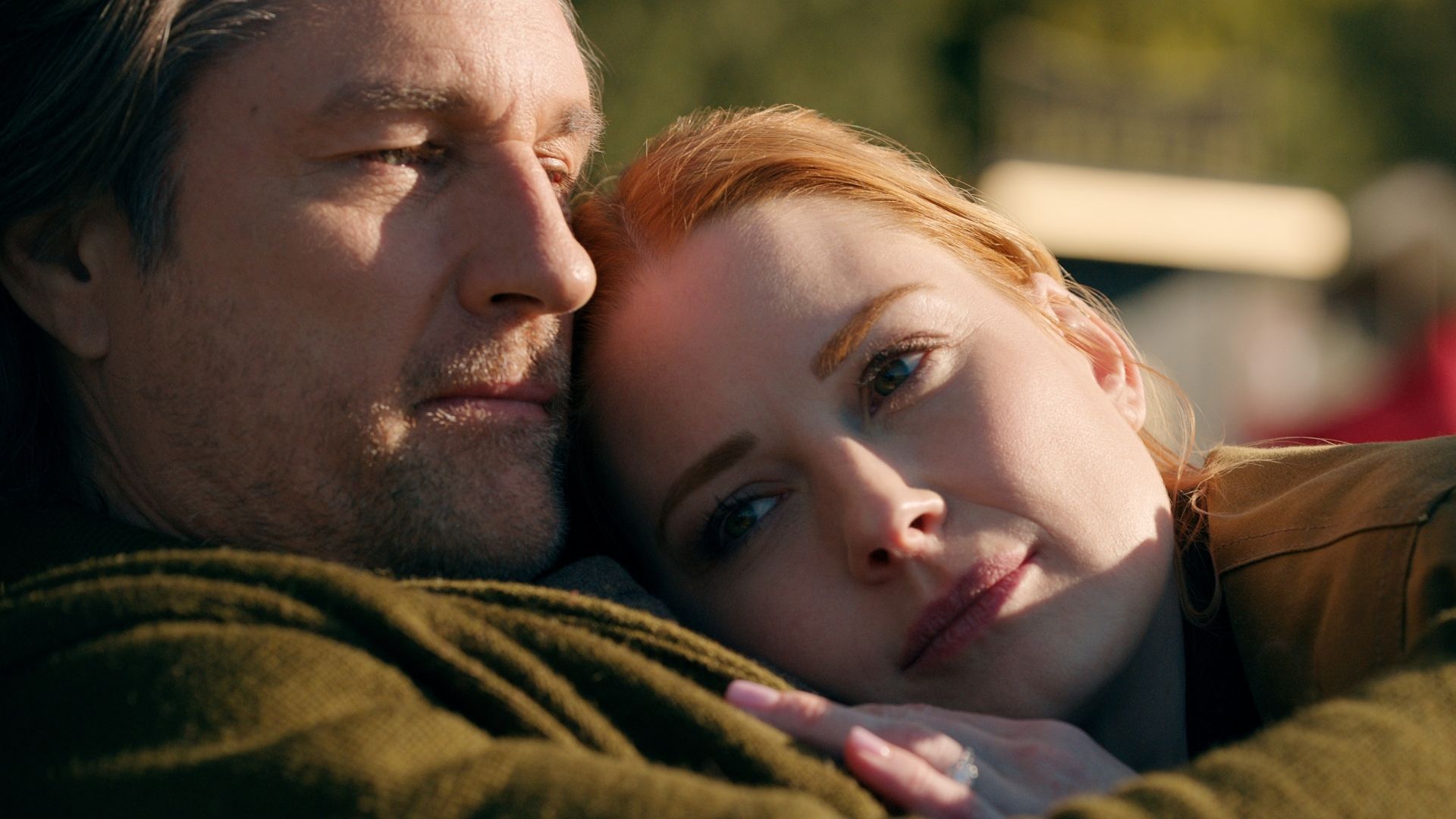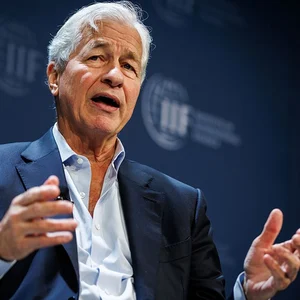Copyright Slate

In August, at the 2025 Venice International Film Festival, the stars of Bugonia—the latest film from Yorgos Lanthimos—posed for a photo on the red carpet. A-listers Emma Stone and Alicia Silverstone looked resplendent in slinky evening gowns, but standing between them, with two big arms clasped around their waists, was Stavros Halkias, a stand-up comedian most famous for a mythically profane podcast called Cum Town. This was a watershed moment for a contingency of extremely online comedy nerds. Stav, as he’s affectionately known, had amassed himself a cultlike fandom on the fringes of the stand-up ecosystem throughout the 2010s. His style—fratty, self-effacing, and joyfully unencumbered by political prudence—made him a star among young, disaffected men, who especially savored his anti-woke curiosities. On Cum Town, Halkias and his co-hosts Adam Friedland and Nick Mullen resurrected long-deprecated slurs (the R-word was a favorite) and batted around racialized mock accents (all three of them had a Steve Harvey impression). It was a reaction to that moment in time, perhaps one of the earliest signs that the Obama-era social contract had started to crumble. In earlier world orders, when strict liberal politeness dictated the customs of pop culture, it seemed unthinkable that Halkias would someday breach the image-conscious sanctum of Hollywood. But nobody knows what the rules are in 2025, and that’s exactly how Halkias found himself sharing screentime with Emma Stone, of all people. Unlike other comedians who have ridden the insurgent anti-woke wave to fame and fortune—a list that includes Tony Hinchcliffe and Theo Von, among others—Halkias is the furthest thing from a right-winger. Cum Town was loosely associated with the broader Bernie Bro tide during its time on the air, and more recently, Halkias has been actively involved in Zohran Mamdani’s campaign for the New York City mayoralty. This puts him in a unique spot: He’s a staunch democratic socialist conversant in MAGA dialect, which is a valuable resource at a moment where progressive messaging is in disarray. In a video call, we talked about that position, as well as how Halkias has adjusted to his new threshold of fame, and what comedy and counterculture look like in the second Trump term. This interview has been edited and condensed for clarity. Slate: So, how did you end up in Bugonia? Stavros Halkias: Your guess is as good as mine. I still don’t know exactly. I don’t really understand the process. I got a call from my agent, and she was like, “Hey, we think Yorgos Lanthimos wants to meet with you.” I was like, “What the fuck are you talking about? Are you out of your fucking mind?” It was at a time where I had basically told my agent, “Listen, don’t fucking bother me. I’m not doing anything. I need a full year off. I’ve gone crazy.” So there was a list of five people that I would’ve been like, “Hit me up if these guys want to work with me.” It was, like, Yorgos, Scorsese, and so on. I was basically sending them that list to be like, “This is how ridiculous the opportunity needs to be for me to work this summer.” It’s like telling your little kid, “OK, well, you can stay up all night if Superman comes home.” So yeah, I had no idea that this would happen. She was just like, “Yeah, Yorgos want to Zoom with you.” I was like, “Oh, this is some preliminary shit. It’s not going to be me. It’s nice of him to meet with me. Who knows? Maybe he saw something I did he liked.” It was insanely surreal to get the call. Even now, after going to Venice and watching the movie, I’m like, “This is nuts. I’m going to the premiere with my co-workers Emma Stone and Jesse Plemons, and my boss Yorgos Lanthimos.” Yorgos is from Greece, and you talk about your Greek heritage all the time. Do you think there was a connection there? I’ve seen that a lot, and obviously I like to joke about it. “Yeah, my great-grandfather owed his great-grandfather a goat, and now we’re even.” But I don’t think so. I mean, I’m a first-generation immigrant, but Greeks from Greece don’t see you as Greek. It’s like Irish guys going over to Ireland and some guy from Boston being like, “I’m Irish,” and everyone in the pub telling them to fuck off. Did you get the sense that Yorgos was familiar with your work at all? He had seen my special. He’d seen at least one of my specials. But he’s just a guy with really good taste, and really good vision for casting and how certain elements are going to play together. He’s constantly on the lookout for things you wouldn’t expect. But I don’t get the feeling that he’s some massive fan of mine. He was just looking for someone to fit the exact role he had in mind, and I was lucky enough to get picked. You haven’t been in a ton of film and TV, and this was one of your first times working with an auteur. How was getting directed by Yorgos different from, say, when you show up to Shane Gillis’ Netflix show Tires? Tires is the thing I’ve worked on the most, and the director is a close friend of mine who I can call a pussy and be like, “I’m not doing that. That sounds fucking stupid.” The nice thing about Tires is that the inmates run the asylum. But on Bugonia, I think Yorgos knew exactly what he wanted, and I guess I did an OK job. When you don’t really know about acting, you just assume you’re going to get there and it’s going to be like, “Oh, let’s talk about the scene and the motivations.” Look, at the end of the day, it’s a fucking movie about Jesse Plemons and Emma Stone. On the spectrum between furniture and an actor, I’m somewhere in the middle. I was pretty lucky in that things went pretty fast. There was no Kubrick-level shit where I had to do the same thing 1,000 times. All Yorgos’ notes were just very practical. Like, “Stop fidgeting when you do this.” Like directing a toddler. They’re jingling keys to make sure my eyeline is right. You mentioned the Venice premiere. That photo of you and Emma Stone on the red carpet went viral. I think, for a lot of people who have followed your career, it was pretty crazy to see that you had reached that echelon of fame. Do you feel like you’ve hit a higher stratosphere? Has your life changed at all from when you were mostly famous for hosting a podcast? I feel like I have done a speed run on a few different types of fame. With podcast fame, you’re a regular guy and you go to eight neighborhoods in the world. You go to Bushwick, you go to whatever the cool neighborhood in Chicago is. You’re in fucking East L.A. You’re a celebrity in specific bars. That was easy and fun. You’re just a normal guy, and then when you want to feel famous, you just fucking pop in for a drink and then you get to go back to your regular life. Then, weirdly, the real big break happened in 2020, 2021, 2022, where every stand-up clip on Instagram Reels and TikTok was going viral. I just happened to be promoting a special at that time. No joke, the biggest jump in fame has been going from podcast fame to TikTok fame. Every demographic saw me, in a way that was not the case with Cum Town. I think that’s when my wife started to know who you are. Don’t get me wrong, 75 percent of the time when a woman approaches me, they’re telling me their boyfriend, or their brother, or now even their dad, is a huge fan. But now there’s a 25 percent chance they’re like, “I’ve seen you off YouTube Shorts” or whatever. In 2025, between the second season of Tires and some of this Bugonia press, we’ve gotten to an even weirder zone where people just know me from things deeper in my career. You never seemed like you cared all that much about becoming famous when you were hosting Cum Town. Like, the way you let those edgy jokes flow freely seemed to signal that crossover success wasn’t a huge priority. In those days, did it ever seem like the waters you’re swimming in now were unreachable? To be honest with you, no, because if you think that way, then you don’t do comedy. I went to Baltimore City public schools. My true wildest dreams were to make $65,000 a year playing B-level clubs. Even in my wildest fantasies, I wasn’t playing the best clubs. So, everything was house money to me. I think people are too self-aware. The artist’s job is not to think about how they’re going to be fucking perceived. Again, I hate to say art in terms of what I do, but in the end, stand-up is a very low-level art. It used to be an insult to say somebody’s a climber, or that somebody’s just trying to get famous. Now it’s expected. That was never my thing. It was like, hey, I’m going to do what I want to do. If I wanted to make money or be successful, I would not have gone into entertainment. I did a dumb podcast with my friends that I was sure was going to fail. It took me out of poverty. I didn’t give a fuck if there were going to be think pieces written about me in 10 years. It was just nice that I could pay my dad’s car insurance. You had a viral moment on your new podcast, Stavvy’s World, where you pushed back against comedian Jordan Jensen’s usage of the slur “tranny.” Why do you think trans jokes have gotten so pervasive in comedy? The fucked-up thing is Jordan has interesting things to say about gender identity and how you present yourself to the world and what she was feeling, and to be honest with you, if I thought that was going to become a topic of conversation, I probably would’ve dug into it a little more. But I was fatigued. I just saw it as my friend bringing up a hack topic. It’s also tough because you don’t want to feed these narratives. I do hate that something like that gets caught in this jet stream. I’m not interested in scoring good-guy points as a comedian. I don’t want to be a mascot for having the right opinions. But to get back to the crux of it, I mean, people are fucking lazy and they’re hacks. To me, it’s that simple. It’s a reaction to the first wave of woke shit where people are stating their political beliefs onstage and earning clapter. Whenever you’re dictated by trends, you’re unimaginative, and you’re just going to keep doing the same bullshit over and over again. I don’t even care if you have a funny transphobic joke. Truly, I don’t. One of my favorite specials of all time is Patrice O’Neal’s Elephant in the Room. There is a lot of misogynistic stuff on that special, but it’s hilarious, and that’s what a real comic can do: make me disagree with you. If I fundamentally disagree with you, but I am laughing at your perspective, you are an incredible comedian. It’s just very unfortunate that now hacks and comedy have aligned with sinister political forces. They’ve aligned themselves with this culture war bullshit. It’s like they’re doing PR for a really shitty political movement. They think they’re being rebellious when they’re just sucking off power. I mean, it’s the most pathetic thing I’ve ever seen. You identify as a socialist, but you’ve also been welcomed in those venues you’re speaking about. Like, you’ve hosted Kill Tony before, you’ve chopped it up with Theo Von, you’ve been on Joe Rogan. I’m curious to know how you see your role as a lefty guy in those right-leaning environments. I guess my role is to just go in there and be a fucking person, and talk to my friends who I don’t agree with and try and have actual common ground. Because I really do, in my heart, believe that a lot of this is people getting swept up into shit. I think some of it, again, is just blatant careerism where people assumed culture was going one way. They wanted to hop on the Trump train and chase views. I think comedians can come back to earth and realize what our role actually is: to stop fucking doing propaganda, to stop being a useful idiot for a horrible administration, and just be funny. Because a lot of them are. A lot of these guys that people are mad at are funny. I think to see what the Trump administration is doing, to support what ICE is doing right now, as a free-speech comedian, I mean, you’d be the biggest fucking idiot hypocrite there is in the world. I think there is common ground to find here to move us all away from this fucking bullshit. On Cum Town, the three of you were all pretty exhausted by wokeness. You’d use the occasional slur, or speak in an offensive accent, or push the envelope in a bunch of different ways. Everyone listening understood what you stood for politically, but when I look back on those days, I do find myself thinking that Cum Town had an influence on the current shape of right-wing comedy. Is there anything you would have done differently? No, because I think that fucking sucks. I hate it when comedians lead with their thoughts. Sometimes I’ll see this criticism of me right now where people will be like, “Oh, he doesn’t think you should say slurs, but look, he was on a show where you could say whatever you want.” People don’t understand the cultural context, and also what it’s like to change as an artist and as a human being. I was broke as fuck in my mid-20s. I had nothing. I would’ve done crime, dude. I made $30,000 one year off Cum Town the first year and I put it on a down payment on a house in Greektown because I was like, “That’s where my brothers live.” I bought my family a house. If you told me I could have put on a ski mask and fucking hit a guy with a baseball bat for $30,000, I would’ve done that at that point in my life. So, saying some fucked-up jokes did not weigh on me at all. But also, I do think it’s really important for younger people to get fucked-up jokes out of their system in a healthy way. You can even argue we were a little late to it because we’re fucking immature. And also, again, I want to highlight the cultural context. Doing the same exact show now, there’d be no juice to it. Nick in particular really hated those woke scolds. The No. 1 enemy of these people was Nick Mullen, because he got off on fucking with them. But what are you up against now? What are you risking? Fucking Trump coming on your podcast and giving you a presidential medal of honor for saying a slur? You know what would actually be provocative right now? Having a podcast where you’re making fun of Charlie Kirk. That’s the actual equivalent to Cum Town. Find the next thing, dude. That’s how art works. There was a time in recent memory where, whenever anyone wrote about you or Adam Friedland or Nick Mullen, or Cum Town as a whole, it had a pretty negative slant to it. That’s not the case anymore. You’re getting profiled in Vulture, Friedland is earning consideration in the New Yorker. What do you think has changed? We were a lot of people’s guilty pleasure. You know what I mean? Once we stopped doing Cum Town, a lot of people came out of the woodwork and were like, “Hey, man, big fan.” I mean, it was by design. We want the dumbest name possible. Nick in particular was like, “You would look stupid criticizing something called Cum Town.” So we, on purpose, wanted it to be this barrier-to-entry thing. Also, we were doing it at the height of people getting canceled. And I think it’s quaint, when we were comedians who have basically decent opinions and were also saying a slur every once in a while, versus 35-year-old Republican staffers saying, “Hitler’s awesome.” I think people now are like, “Holy shit. We had it good when it was comedians pretending to be Nazis as opposed to actual Nazis with the levers of power.”



